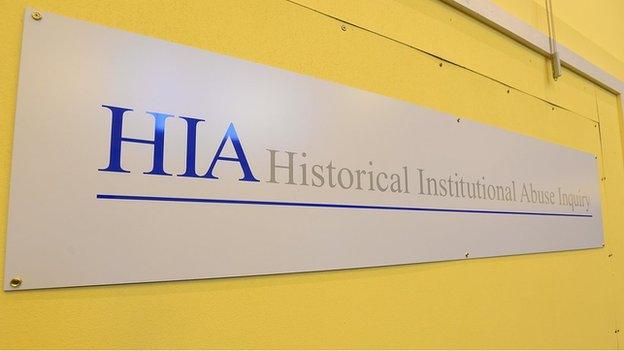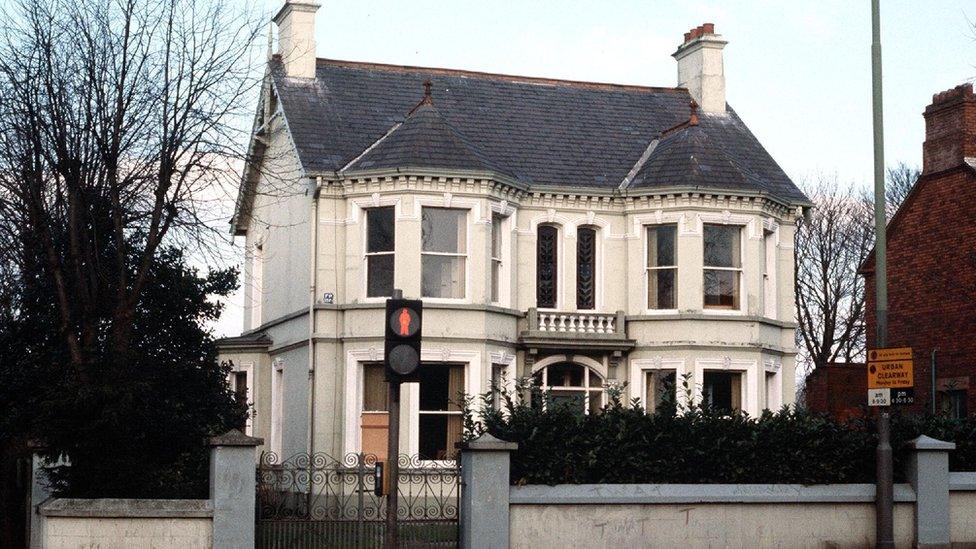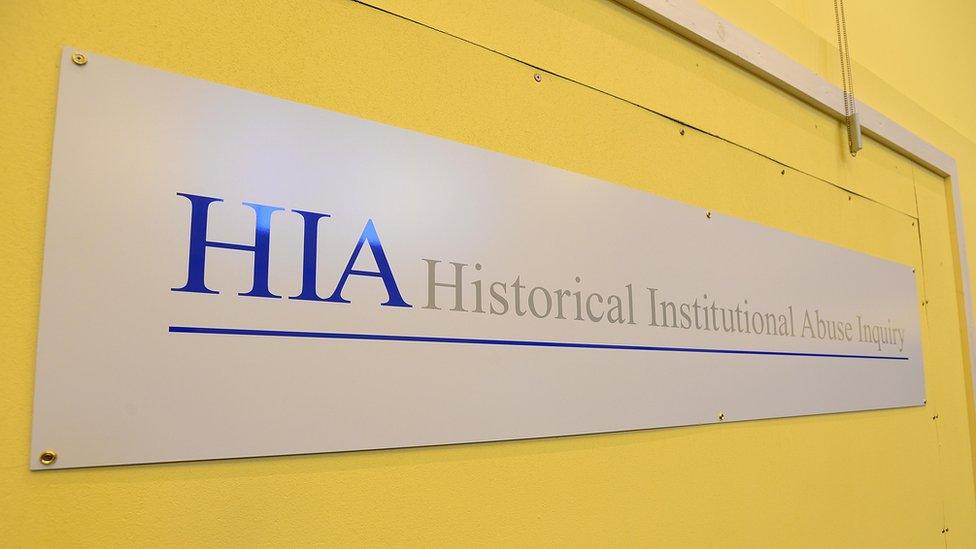Former army officer criticised at Historical Institutional Abuse Inquiry
- Published

The former Kincora boys home in east Belfast
The Historical Institutional Abuse Inquiry (HIA) has said it is entirely neutral and independent.
It was responding to claims by a high profile former army officer, Colin Wallace, who has criticised remarks made about him at the inquiry.
He has been a leading voice in claims about an alleged cover-up by intelligence services of sex abuse at the former Kincora Boys' Home.
The inquiry is examining allegations about the former home in east Belfast.
Mr Wallace, who served in Northern Ireland between 1971 and 1974, has declined to assist the inquiry.
Contradiction
It was revealed at the Inquiry this week that Mr Wallace had contradicted his own claims about the murder of a Belfast schoolboy in 1973.
On Wednesday, the Inquiry saw a document, from 1982, in which it is claimed he alleged a link between Kincora and the murder of Brian McDermott.
The document linked the murder to a paedophile ring at the Kincora Boys' Home.
The inquiry heard Mr Wallace had claimed that "a cover-up of the Kincora ring was preventing the killers of 10 year-old Brian McDermott from being apprehended".
However, the inquiry was then shown a document, from 2004, in which the former army press officer made a statement to the police in which he said: "I had no knowledge that would have linked anyone from the Kincora investigation to the murder of Brian McDermott."
'Media manipulation'
Mr Joseph Aiken, counsel to the inquiry, told the panel on Wednesday that it was a matter of public record that Mr Wallace was engaged in "media manipulation" and "disinformation" in his career.
Mr Aiken also outlined in detail how, in other cases, some evidence from Mr Wallace had been rejected by the Saville Inquiry into Bloody Sunday and by the Barron Inquiry into the 1974 Monaghan and Dublin bombings.

The HIA has been holding oral hearings in Banbridge courthouse
The inquiry panel, headed by retired High Court Judge Sir Anthony Hart, was also told that Mr Wallace previously admitted that he "repeatedly lies, including to police".
Mr Aiken added that appeal court judges in a criminal court in the past had described Mr Wallace as "a person with a proven track record of deception and dishonesty".
Addressing the panel, Mr Aiken said that it was the case that "those who promote his claims in the media appear to ignore the facts I have just shown you".
He concluded: "That, you may consider, has a resonance with much of the reporting around the Kincora story".
Denial
A representative on behalf of Mr Wallace contacted the BBC to respond to the developments at the inquiry.
In a statement, the former army officer denied that evidence he presented was rejected by the Saville and Barron inquiries.
He said the HIA should "correct those inaccuracies as a matter of urgency".
Mr Wallace said: "My position on the murder of Brian McDermott has not changed - I do not know who killed him, nor am I aware of any direct link between his murder and Kincora."
"If the comments attributed to Mr Aiken are a true representation of what he actually said, I am personally very relieved that I decided not to participate in this Inquiry," he added.
Response
In a statement to the BBC, the HIA repeated that Mr Wallace has declined to assist the Inquiry.
It said: "The Inquiry is entirely neutral and independent and is not engaged in using selective material or information, nor is it devoting its energies to attempting to discredit those whose conduct is being examined by it."
The statement added: "The Inquiry does not intend to engage in debate with Mr Wallace, who has declined to assist the Inquiry by responding to questions posed to him and requests that he produce documents.
"Mr Wallace has also declined an invitation to take part in the Inquiry as a core participant."
- Published6 June 2016

- Published31 May 2016

- Published6 January 2016
